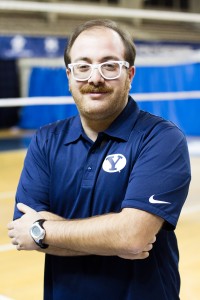Many have heard performance in athletics is 90 percent mental, but going from a collegiate player to an Olympian takes both 100 percent mental attitude and physical dedication.

Maintaining excellent physical health comes from food consumption and exercise. BYU head swimming coach John Brooks said food consumption is dependent on how many calories one is burning each day.
“It is on average that a person should consume 2,400 calories a day, but for the swimmers, they need to consume much more,” Brooks said. “Eating only 2,400 calories, the swimmers would starve. They burn at least 2,000 calories per practice.”
Brooks tells the team to eat a lot of rice, pastas and a good balance between protein and carbohydrates. Practicing two hours every day, morning and afternoon all year round, requires this strict and healthy diet.
Two players from the BYU swim team went to the 2012 Olympics — Rafael Alfaro for El Salvador and Andrew Rutherfurd for Bolivia. In order for these athletes to get to their positions they had to have extreme dedication in every aspect.
This formula for sports dedication follows other athletic events as well. BYU volleyball is another example of devoted players. Giuseppe Vinci, the technical assistant for the BYU volleyball teams, went with the women’s volleyball team to the 2012 London Olympics.
“It takes a lot of commitment; a lot of support from those around you,” Vinci said. “You have to be a go-getter.”
Vinci said the athletes’ recommended food consumption is standard to serious athletes — a consumption of vegetables, fruit, protein, etc., and they need to be continually hydrating and resting.
While collegiate teams and Olympic teams have common threads, Vinci pointed out some differences.
“Olympic-level athletes, they are usually more educated about diet,” Vinci said. “They understand what it takes physically, mentally and emotionally to get to that level. Lots of colleges don’t patrol what athletes eat. It’s left to them.”
Vinci also said the Olympians understand the importance nutrition has on their performance: if they eat better, they will practice better, sleep better and recover more quickly.
Another difference between collegiate athletes and Olympic athletes is that Olympians practice year round and collegiate teams practice seasonally. Olympians have to put in another level of dedication in order to get to the gold.
Other than diet, the Olympians have to dedicate their bodies to a full workout everyday. Once the athletes arrive at the Olympics, their workouts become less intense as they turn their focus to the competition against their opponents.
Being an Olympian involves a great amount of dedication and work both physically and mentally, and going to the Olympics is not an easy task. Those who have achieved the honor to attend can be seen in the upcoming 2014 Olympic events in Russia.




